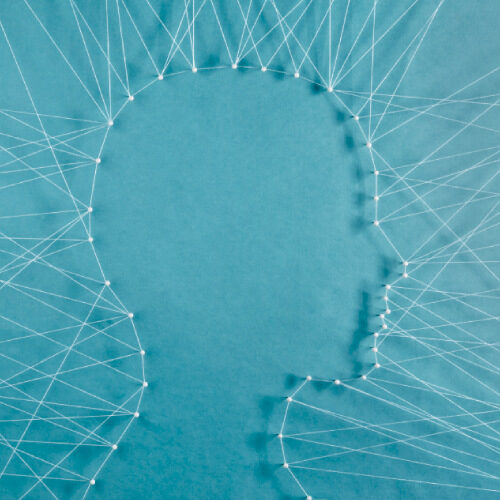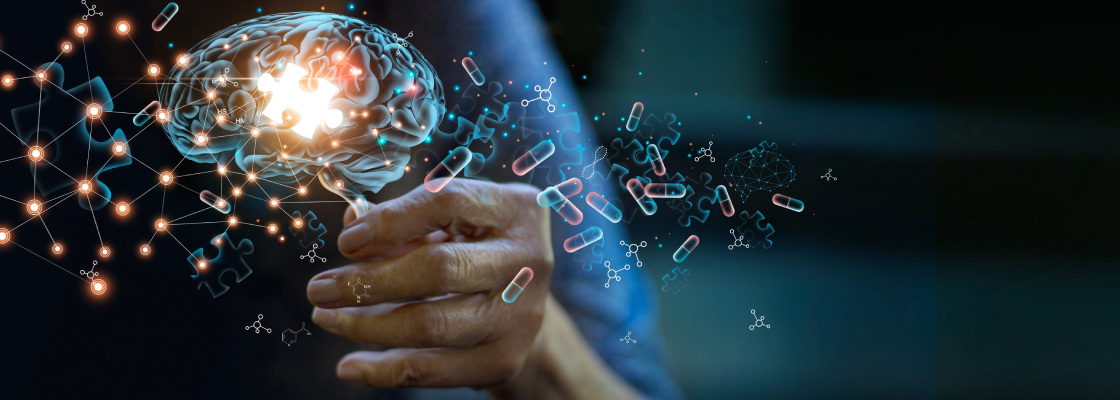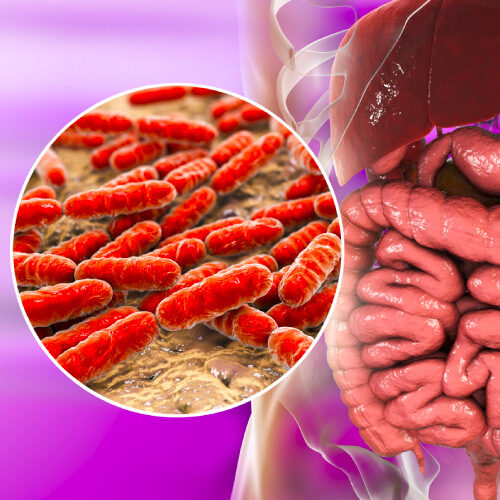ADHD San Diego
Attention deficit hyperactivity disorder (ADHD) has become an increasingly prevalent concern, affecting individuals of all ages. This is a complicated condition influenced by various elements, and at our Naturopathic Clinic in San Diego, California, we offer an extensive, integrative method for treating ADHD that focuses on the entire individual instead of just their specific symptoms.

What Is ADHD?
ADHD, or Attention Deficit Hyperactivity Disorder, is characterized by a constellation of symptoms that impact an individual’s ability to sustain attention, regulate impulses, and manage hyperactivity.
Inattention manifests as difficulty focusing on tasks, being easily distracted, forgetfulness, and frequent careless mistakes.
Hyperactivity involves excessive fidgeting, restlessness, and difficulty remaining seated when expected.
Impulsivity is marked by hasty decision-making, interrupting others, and difficulty waiting one’s turn.


While everyone may occasionally experience these behaviors, individuals with ADHD exhibit them more frequently and to a degree that interferes with daily functioning and relationships.
The spectrum of ADHD symptoms varies, leading to three main subtypes: predominantly inattentive, predominantly hyperactive-impulsive, and a combined presentation.
These symptoms often emerge in childhood but can persist into adolescence and adulthood, impacting academic, occupational, and social aspects of life.
Identifying and understanding these symptoms are crucial steps toward effective treatment.
Causes of ADHD and Our Treatment Approach:
ADHD is believed to be influenced by a combination of genetic, environmental, and lifestyle factors. Naturopathic medicine seeks to understand and address the root causes of ADHD, focusing on holistic approaches that consider the interconnectedness of the body, mind, and environment.
Here are several factors to consider in the development, management, and treatment of ADHD:

- Genetic Predisposition: Individuals with a family history of ADHD may have a higher inclination toward the condition. However, it’s important to note that having a genetic predisposition doesn’t automatically mean developing ADHD. Environmental factors also play a significant role in its development. These factors can include exposure to certain toxins, prenatal conditions, early childhood experiences among many others. Understanding the complex interplay between genetics and the environment can provide valuable insights into the development and management of ADHD.
- Nutritional Deficiencies: Naturopathic medicine places a strong emphasis on the role of nutrition in overall health, including brain function. Deficiencies in certain nutrients, such as omega-3 fatty acids, iron, zinc, magnesium, and vitamins D, B6, B9, and B12, have been linked to ADHD symptoms. Our naturopathic doctors work with patients to identify and address nutritional imbalances through blood testing, personalized dietary plans, and targeted supplementation.
- Food Sensitivities and Allergies: There is a correlation between ADHD symptoms and food sensitivities or allergies. Some specific foods, additives, and/or preservatives can worsen ADHD symptoms in susceptible individuals. As part of a holistic approach, it is important to identify and eliminate potential triggers from the diet. This can contribute to a more comprehensive and effective management of ADHD.
- Environmental Toxins: Exposure to environmental toxins, such as lead, pesticides, and pollutants, is considered a contributing factor in ADHD. Our doctors work with patients to reduce environmental toxin exposure and support the body’s detoxification processes through lifestyle modifications and targeted interventions.
- Gut Health: The gut-brain connection plays a vital role in naturopathic medicine. Imbalances in the gut microbiome, inflammation, and gastrointestinal problems can have a profound impact on ADHD symptoms. Our doctors prioritize gut health by implementing dietary modifications, probiotics, and other interventions that promote a well-functioning digestive system as well as a healthy gut-brain connection.
- Neurotransmitter Imbalances: Imbalances in neurotransmitters, specifically dopamine and norepinephrine, are believed to contribute to the development of ADHD. Our doctors possess the expertise to evaluate and address these imbalances through comprehensive testing and targeted interventions. By doing so, they can provide comprehensive care that enhances treatment outcomes

- Lifestyle Factors: Naturopathic medicine prioritizes lifestyle modifications as a key approach to managing ADHD. Factors such as insufficient physical activity, irregular sleep patterns, and chronic stress can all impact ADHD symptoms. Our doctors collaborate with individuals to develop consistent routines, integrate regular exercise, and implement stress reduction techniques in order to improve treatment outcomes.
- Psychological and Emotional Factors: Emotional and psychological factors, such as trauma or chronic stress, may contribute to or worsen symptoms of ADHD. Our doctors may incorporate mind-body approaches, including counseling, to address the emotional aspects of ADHD. These approaches can provide valuable support and guidance to individuals with ADHD, helping them better understand and manage their condition.
- Genetic Mutations: Certain genetic mutations can influence ADHD. The MTHFR and COMT gene mutations are associated with this disorder. The MTHFR gene is responsible for the methylation process, crucial for neurotransmitter development. A mutation in the MTHFR gene can disrupt this process, leading to ADHD symptoms. Similarly, the COMT gene regulates dopamine levels. A mutation in the COMT gene can result in dopamine imbalance seen in individuals with ADHD. These mutations don’t directly cause ADHD but increase susceptibility when combined with other factors. Genetic testing and targeted interventions can help manage these influences on ADHD.
- Cerebellum Function: The cerebellum, often referred to as the “little brain,” plays a crucial role in motor control, coordination, and balance — functions frequently associated with ADHD. Research suggests that individuals with ADHD may have differences in the structure and function of the cerebellum, which can contribute to symptoms like impulsivity, hyperactivity, and challenges with fine motor skills. Moreover, the cerebellum is involved in cognitive processes such as attention, which is a significant difficulty for those with ADHD. Therefore, understanding and improving cerebellum function can offer valuable insights into the intricate nature of ADHD and guide more precise interventions.
Schedule Your In-Person or Virtual Discovery Call Today · 858-201-3171
ADHD Testing And Assessments That Help Assess Factors Contributing To Symptoms
Our naturopathic doctors can conduct a range of tests and assessments that help assess factors contributing to ADHD symptoms. These tests are designed to identify potential triggers and underlying conditions that may be exacerbating symptoms, and they play a crucial role in constructing a comprehensive, individualized treatment plan.
One of the key areas we focus on is nutritional deficiencies.
As noted before, certain deficiencies in vitamins and minerals, such as omega-3 fatty acids, iron, zinc, and vitamins D, B6, B9, and B12, can contribute significantly to ADHD symptoms.
Through comprehensive blood testing, our doctors can identify these deficiencies and recommend personalized dietary plans and targeted supplementation to address them.

We also test for hormonal imbalances and neurotransmitters, both of which can have a profound impact on ADHD symptoms.
Hormonal imbalances, particularly in the stress hormone cortisol, can exacerbate symptoms, while imbalances in neurotransmitters, specifically dopamine and norepinephrine, can contribute to the development of ADHD symptoms.
Comprehensive testing facilitates the identification and management of these imbalances, paving the way for more effective treatment.
Food sensitivities can also have a significant impact on ADHD symptoms, which is why we consider testing for these as a crucial part of the assessment. Identifying and eliminating potential dietary triggers can lead to a significant reduction in symptoms.

Comprehensive Gut Health Analysis
Additionally, we offer comprehensive stool analysis to assess gut health, as imbalances in the gut microbiome and gastrointestinal problems can also significantly affect ADHD symptoms.
Similarly, we offer genetic testing to identify any mutations, such as the MTHFR, COMT, and other gene mutations, that can influence ADHD symptoms.
The connection between the gut and brain is known as the gut-brain axis, which plays an essential role in maintaining mental wellbeing. An imbalance of gut bacteria may lead to inflammation and poor digestion, affecting neurotransmitter production, particularly dopamine and serotonin, both of which are crucial for regulating mood and attention.
If you, a child, or loved one have ADHD but are looking for alternative treatment options beyond just medication, you’ve come to the right place.
FAQ
Are You Born with ADHD, or Does One Develop It?
What Are the Three Common Symptoms of ADHD?
Will ADHD Go Away?
It is possible for some children to outgrow their symptoms of ADHD as they mature, but this is not always the case and varies from person to person. Additionally, while natural medicine can be effective in managing the symptoms of ADHD, it cannot cure the condition itself. The best course of treatment will depend on individual circumstances and should be discussed with a medical professional.
Comprehensive, Holistic Approach to Managing ADHD
ADHD is a complex condition with an array of contributing factors.
Our naturopathic doctors provide a comprehensive, holistic approach to testing and managing ADHD, addressing the whole person rather than targeting individual symptoms.
This includes an in-depth understanding of the role of nutrition, environmental factors, gut health, neurotransmitter imbalances, lifestyle, psychological and emotional factors, genetics, and cerebellum function.
Additionally, ADHD is often accompanied by other mental health concerns, such as anxiety or depression.

To find out more information about our approach to mental health, you can contact us today. Our team of experts specializes in testing and treating these co-occurring conditions, ensuring a well-rounded and personalized approach to managing ADHD.
We encourage you to take the first step now.
Contact us today to setup a discovery call, or call 858-201-3171 with one of our experienced naturopathic doctors and learn how a personalized, holistic approach to ADHD may benefit you or a loved one.
